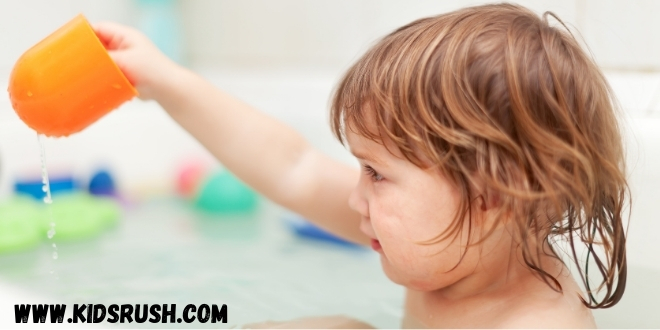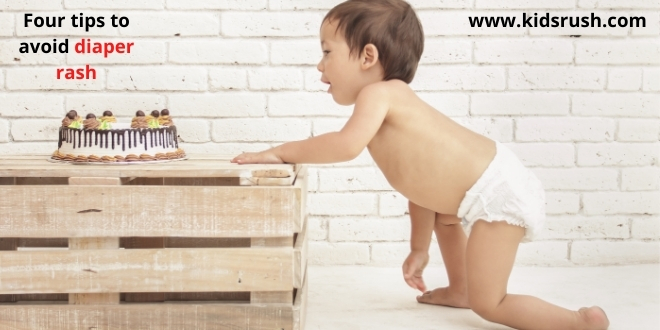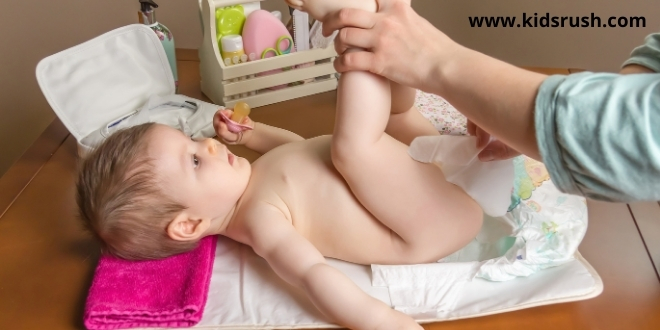Four tips to avoid diaper rash:
Diaper rash is common in one-year-olds. It is up to the parents to make sure that their infants suffer from these ailments.
All parents should know how to prevent the onset of diaper rash in infants, and especially first-time parents may need to learn this. There is a skin condition, or dermatological problem, in the area covered by the diaper.
In general, it occurs in the diaper area, that is, around the genitals and buttocks, abdomen, and upper thighs. The cause is moisture, heat and the skin is trapped and irritated. This condition often occurs in infants during their first years of life.
Discover: Baby drool rash: causes and Treatment
Diagnosis and causes of diaper rash
The diagnosis of dermatitis, or diaper rash, should be made by physical examination. The symptoms of this disease are visible sores on the skin in areas that have direct contact with the diaper.
The main reasons are:
- Sensitive Skin
- Prolonged contact with urine and feces
- Changed pH in urine and feces
- Moisture
- Poor hygiene
Tips for preventing diaper rash
If you notice redness when you take off your baby’s diaper, this is a sign that diaper rash is just beginning to appear. You can prevent it from developing into a more serious skin problem by taking the right action quickly.
Below are some tips on how to prevent diaper rash:
Wash the baby thoroughly

Use plenty of warm water and wash the diaper area thoroughly each time you change the diaper. We recommend that you do not use soap when doing this. If you ever need it, you can use a soap with a neutral pH.
Then gently wipe the area and avoid rubbing it. If possible, change the diaper in an open and airy space. Avoid using wet towels or wet wipes that contain alcohol or perfumes.
Change the diaper regularly

It is also very important to change your diaper often, at least every three hours during the day, even if your baby has just urinated. During the night, if possible, change the diaper every 5 hours. You must also always change your baby every time he poops.
Be careful when putting on the diaper, make sure it is not too tight. This can lead to the diaper rubbing against the baby’s skin and creating irritation. When buying diapers, read the package carefully as there are diapers designed for sensitive skin and also super-absorbent diapers.
Use baby creams
Use baby diaper rash cream on all areas that need it every time you make a diaper change. These diaper rash creams should be aqueous and contain astringents, such as zinc oxide. Also, these creams form a waterproof layer on the skin.
It is best to apply a baby diaper rash cream after each time you clean the area. In this way, you create a protective barrier between the diaper and the skin, which can prevent irritation from occurring. You can find these creams in pharmacies and grocery stores, or you can try a homemade recipe.
Change your baby’s diet

It is important to keep track of all the new foods you give your child, as some may change the pH of the stool. If you notice that the food your baby is eating is causing a diaper rash, stop giving it to her immediately.
The same thing can happen with babies who only eat breast milk. In this case, the parents should properly control the food and medicine that the child receives. Parents should also consult a specialist when planning to change their child’s daily diet.
It is very important to follow these recommendations to prevent diaper rash and ulceration. Otherwise, it can develop into infections and cause even worse discomfort for your little one.
The Bottom Line
Finally, be aware that irritating diaper rash is common in children up to 12 months. In other words, one should not put all the blame on the parents.
But remember to follow these tips to prevent your baby from getting even worse. At the same time, if you make sure to take good care of your baby’s hygiene, you will not need to consult a specialist for treatment. Remember that in general, it is always easier to prevent than to cure.

